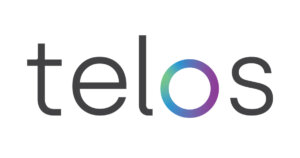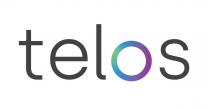 Blockchain Creating Better Landscape for Freelance Workforce
Blockchain Creating Better Landscape for Freelance Workforce Blockchain Creating Better Landscape for Freelance Workforce

Photo by rawpixel on Unsplash
The growth of freelancing and the gig economy is changing the workforce. According to Upwork, more workers are opting to work as contractors and freelancers as opposed to full-time employees. It is estimated that 36 percent of the US workforce is engaged as freelancers and within ten years, more than half of the workforce is expected to freelance.
Freelancing has been especially attractive to the younger generations. The prospect of being their own bosses, having their choice of clients, and working flexible hours appeals greatly to free-spirited millennials and members of the younger Generation Z.
However, like anything, this method has its own list of pros and cons. Traditional employment typically offers better security when it comes to income and salaried employees get guaranteed pay. Freelancers, on the other hand, may have to weather lean periods when projects are in short supply and also miss out on benefits such as pensions and healthcare. There are also increasing concerns of freelancers being exploited as many regulations and labor laws that protect employees do not apply to freelancers.
Fortunately, blockchain is now finding applications in human resources and workforce management. Several projects are creating new mechanisms that change the way freelancers can approach their work. Here are three ways blockchain is shaping a better landscape for freelancers.
Accessible Pensions
Freelancers often have to handle retirement planning for themselves. However, due to the added paper and legwork, many freelancers opt to forgo enrolling in programs such as pension funds. Blockchain-based project Akropolis seeks to change this by providing everyone access to sustainable pensions.
Through the platform, users will be able to directly view, compare and manage their retirement portfolios with total transparency. They can explore and utilize various pension products from a decentralized marketplace. Using blockchain’s transparency, they are also able to audit their accounts at any given time, unlike traditional pensions where real-time information about fund performance can be limited.
The platform’s safeguards also encourage funds and fund managers to act in users’ best interests. A reputation and ranking system track their performance which enables users to identify the best funds to join. This gives users flexibility in choosing where to invest and diversify their funds. The trust mechanisms also allow for a worry-free investing experience for freelancers.
Faster Payments
Many freelancers still struggle to receive payments, particularly for cross-border work. Conventional remittances and online payments can be slow and expensive.
For instance, freelancers receiving payment through PayPal may have to convert funds to their local currencies first before they can transfer funds to their bank accounts. PayPal already charges users for receiving payments but the rates they apply to currency conversion are often unfavorable. On top of this, local banks may also charge inward remittance fees. These rates and fees can add up and take a significant chunk out of freelancers’ earnings.
Crypto payments have found a niche in the remittance space due to the speed at which coins can be credited to a receiver’s address. Even with the Bitcoin network’s confirmation times, crypto-based remittances can still be completed in matter minutes or a few hours. In contrast, wire transfers and online payment withdrawals to bank accounts can take days to process.
With the increasing availability of local exchanges in various countries, it is also now easier to convert top coins like Bitcoin and Ether to local fiat currencies. Companies like Bitspark which facilitate remittances through cryptocurrencies have found success in markets like Asia due to the popularity of overseas fund transfers.
Better Protection
The exploitation of freelancers is real. Freelancers have complained about being cheated by their clients and being denied the payments they were due. Even with signed contracts, freelancers often hesitate to pursue litigation since the legal action can often cost more than what they are due and so they end up taking the loss. Legislation protecting freelancers have also been slow to come by.
Blockchain platforms can help change this by encouraging employers and freelancers to all act in good faith. Platforms like Ethlance are using blockchain to ensure that only legitimate parties get to transact with each other. Job offers, past transactions, budgets, and even wallet balances can be checked so it is possible for freelancers to verify an employer’s history and performance. This way, they can only work with employers with positive reputations.
Smart contracts can also be leveraged to provide all parties with protection. Smart contracts can be used to outline the terms of a work agreement, put payments in escrow, and automate the release of funds once the terms have been satisfied by both parties. JUR is providing such functionalities to facilitate business transactions. This way, parties can rest assured that both sides deliver on the terms of the agreement.
Freelancer Empowerment
These blockchain projects help workers take better control over their freelancing activities. By giving them access to pensions, and solving many issues with legal contracts, freelancers can now have the same promise of a secure financial future enjoyed by traditional employees.
Through crypto payments, they can also receive payment quicker than before without having to pay high fees to do so. Jobs platforms and smart contracts also provide the crucial protection that freelancers need against abusive employers. With these pressing concerns eased, freelancers will be able to practice their professions in a more stable and profitable landscape.










































![WorkCoin Aims to Disrupt Global Job Market Through Decentralized Freelancer Network [INTERVIEW]](https://cryptoslate.com/wp-content/themes/cryptoslate-2020/imgresize/timthumb.php?src=https://cryptoslate.com/wp-content/themes/cryptoslate-2020/images/cover-temp-img.jpg&w=334&h=176&q=75)







